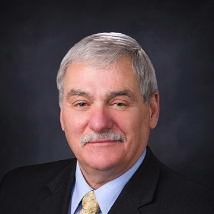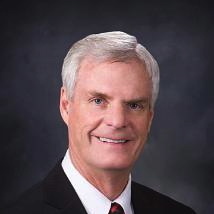
The Legislative Council Thursday unanimously appointed 10 lawmakers to an interim committee assigned to improve and strengthen Idaho’s public school system.
As expected, Senate Education Committee Chairman John Goedde, R-Couer d’Alene, and House Education Committee Chairman Reed DeMordaunt, R-Eagle, were picked to lead the new committee.
The group, appointed by House Speaker Scott Bedke and Senate President Pro Tem Brent Hill, includes eight Republicans and two Democrats.
Both Hill and Bedke say they envision the new committee supplementing Gov. Butch Otter’s task force for improving education, but with broader responsibilities.
“I hope it is complementary to the governor’s task force and I have every indication that it will be,” Bedke said. “We as a state have unresolved issues in certain areas that we need to look into, and ultimately that’s the Legislature’s responsibility.”

Bedke said he helped form the committee, with the idea that one of its first priorities would be labor and bargaining issues. The 2013 Legislature revived elements of the Proposition 1 labor law, although the new laws have a one-year lifespan. But Bedke said it quickly became apparent the committee should be given broad responsibilities.
The interim committee may consider the new Idaho Core Standards, the state’s version of Common Core, Hill said. The standards became a hot topic during some of the task force’s listening sessions held across the state this April, but the task force has taken no position on the issue.
“Common Core standards are not something the governor’s task force was charged with looking at,” Hill said. “Our interim committee is a little more broad and has a little more discretion on what it wants to focus on.”
House Concurrent Resolution 33, which authorized the interim committee, says the group’s mission is to “to undertake and complete a study of how to improve and strengthen Idaho’s K-12 educational system and all matters relating thereto.”

The 14-member Legislative Council, which oversees management of the Legislature, approved the new committee assignments Thursday, with very little discussion.
Other members of the new education committee include:
- Sen. Steven Thayn, R-Emmett.
- Sen. Jim Patrick, R-Twin Falls.
- Sen. Fred Martin, R-Boise.
- Sen. Branden Durst, D-Boise.
- Rep. Wendy Horman, R-Idaho Falls.
- Rep. Judy Boyle, R-Midvale.
- Rep. Julie VanOrden, R-Pingree.
- Rep. Holli Woodings, D-Boise.
So far, no meetings have been announced. Hill and Bedke said the group is eager to get to work, but they will leave it up to Goedde and DeMordaunt to schedule the first meeting.
Neither Goedde nor DeMordaunt attended Thursday’s Legislative Council meeting, and efforts to reach them by phone were unsuccessful.
The interim committee will report its findings back to the 2014 Legislature. But Bedke stressed that its work may not be finished by January, and he emphasized the group will be able to continue working for as long as it takes.
Federal lands committee
In other business Thursday, lawmakers also appointed 10 legislators to serve on a committee to study state management of Idaho’s federal lands.
In April, the Legislature demanded the federal government turn over roughly 16 million acres of federal lands. The issue has strong education ties because the resolution sets up a framework for selling off federal lands and earmarking 5 percent of the proceeds to public school funding.
That committee also includes eight Republicans and two Democrats. Members include:
- Sen. Chuck. Winder, R-Boise.
- Sen. Bart Davis, R-Idaho Falls.
- Sen. John Tippets, R-Montpelier.
- Sen. Sheryl Nuxoll, R-Cottonwood.
- Sen. Michelle Stennett, D-Ketchum.
- Rep. Lawerence Denney, R-Midvale.
- Rep. Mike Moyle. R-Star.
- Rep. Eric Anderson, R-Priest Lake.
- Rep. Steve Hartgen, R-Twin Falls.
- Rep. Grant Burgoyne, D-Boise.
Budget update
Thanks to an increase in revenues, the state is set to bolster rainy-day savings accounts drained during the recession.
State budget and policy analyst Cathy Holland-Smith said revenue boosts could trigger a $58.9 million deposit into the Budget Stabilization Fund when the current fiscal year ends June 30.
But that doesn’t mean agencies or schools should hold their breath for a windfall.
The Legislature has already approved the fiscal year 2014 budget, and any surplus above $20 million must be swept into savings accounts at the end of the year.
“(The Legislature’s) approach of being very careful and saving; you’ve been extremely successful at it,” Holland-Smith told the Legislative Council.
Although the savings accounts were nearly drained by 2012, lawmakers could see the savings accounts maxed out within a few months. By law, the accounts are capped at 5 percent of the state’s general fund.
With a $58.9 million deposit, the balance would reach about $108.6 million.
Under one scenario, if revenues continue to increase, an additional, unplanned savings deposit of about $27.4 million could occur in 2013-14, bringing the balance to $136 million.
Under the 5 percent cap, the balance cannot exceed $136.8 million. That led Holland-Smith to urge legislators to think about raising the cap – some states work with a 10 percent cap, for instance.
“You might want to take a serious look at whether that 5 percent cap is really enough for our state,” she said.
A continued influx of cash could leave lawmakers with an interesting dilemma when they craft the 2014-15 budget next spring. With additional money, lawmakers could raise the cap on savings accounts, pass a tax cut or reverse some funding cuts from the Great Recession.
Even so, Holland-Smith cautioned that much of the surplus is one-time money, which the Legislature has tried to avoid spending on ongoing programs.
